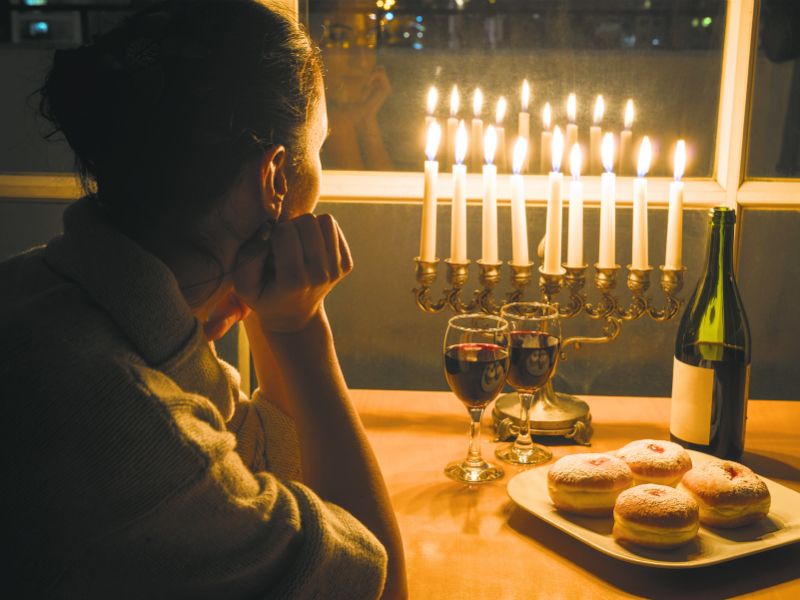The songs that we sing after the Hanukkah candles are lit take on a status that rivals that of the ceremony. The reason is obvious: candlelighting is a painfully short ritual. And putting aside the safety precautions, the fact that we are not supposed to move the candles, only look at them, limits our engagement with the object of the ceremony.
Candles eventually burn out, as our celebration of the miracle ironically shows. As a result, the singing of Maoz Tzur that follows the lighting of the Hanukkah candles presents an opportunity to play a more active role in the holiday.
The song, originally written in five stanzas by a German Jew known only as Mordechai (his name appears in the acrostic), dates to the 13th century. Scholar Ismar Schorsch notes in his essay “A Meditation on Maoz Zur,” that it bears a strong similarity to a German folk song. As is often the case with such hymns, partially because of sophisticated rhyme and the fear of censorship, the language is difficult to unpack. A close reading indicates that each stanza is a reference to other miraculous Jewish redemption stories. One relates to the enslavement in Egypt, while others refer to the Babylonian exile and Purim.
The sixth stanza, which was added in the 16th century, is far more interesting. As Schorsch explains, the author of this addition is left unfulfilled by the occasional redemptions of the past. The messianic urge compels him to ask for God to address Israel’s pressing needs. From the author’s introduction, we can easily discern his target, namely, the Christian tormentors: the reference to Edom, who is seen as the ancestor of the Christians, and the less subtle tzalmon, which as Schorsch astutely notes, is an allusion to the cross (tzelem), makes that all but certain. The request, however, is not what you might expect it to be. The stanza ends with the words “haqem lanu ro’eh shiva,” which literally means “we are asking for seven shepherds.”
Who are these mysterious figures? The source of these words is a verse in Micah. The general context is the final redemption, but the chapter itself relates to the coming of the Messiah. Addressing the contemporary opponent of Israel, Assyria, the prophet says that there will be seven shepherds that will protect the land. According to the rabbinic interpretation, seen in the Talmud and several midrashim, these refer to Adam, David, Seth, Methuselah, Abraham, Jacob and Moshe. On this view, the shepherds are Israel’s pious forbearers, who return to protect us. Remarkably, even Rashi admits that he does not know how the rabbis came up with those specific figures.
On a more literal reading, suggested by the 18th century exegete Rabbi David Altschuler, this is a reference to a sufficient number of leaders who would defend the city at that time. Still, why would we mention them here, in this song? To answer this question, one needs to understand the context of the song as a whole.
It is written to celebrate the autonomy that the Jews had as a result of the Maccabean revolt. With the long and dreadful exile, however, the wish for such a time became far-fetched. As evidence for this reading, we can point to the words, “bring the time of redemption nearer,” rather than a more ambitious “redeem us!” We can also note the plea to set Edom back, rather than topple it.
That is to say the request is a more modest one. As Schorsch points out, the fate of Israel at the poet’s time “continues to hang in the balance.” Thus, in the sixth stanza, what we seem to ask for is some form of control over our own affairs, which in this case is a wish for people to defend our community. These do not necessarily have to be revered authority figures, but simply people who have the interest of the Jewish community at heart and would protect it against external threats.
